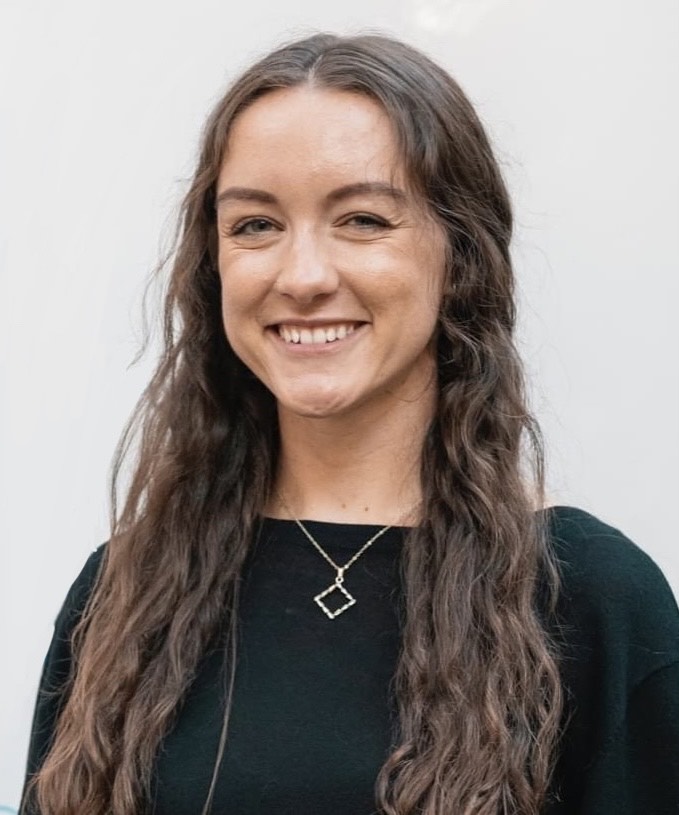Irwin IP is delighted to announce and extend a warm welcome to Jennifer Stumme, the newest Senior Attorney Administrative Assistant. With her past experience, Jennifer is well-equipped to support Senior Attorneys and ensure seamless operations. We are thrilled to have Jennifer join the team!

Who owns the trademark to a subreddit name? This week, the United States District Court for the Northern District of California (the “Court”) considered the issue in an opinion dismissing each of Plaintiff Jaime Rogozinski’s (“Rogozinski”) eight claims against Reddit, comprising four federal trademark claims and four state law claims. r/WallStreetBets is a “subreddit,” or targeted forum on Reddit, where approximately fourteen million Reddit-users discuss stock and option trading. Rogozinski created the r/WallStreetBets on January 31, 2012 and moderated the forum until April of 2020. r/WallStreetBets is perhaps best-known for (1) its contributions to the GameStop short squeeze in 2021, which caused significant losses for certain investment firms that chose to short GameStop, and (2) losing in a head-to-head portfolio competition to a goldfish.
Reddit banned Rogozinski from the forum after Rogozinski filed a trademark application for WALLSTREETBETS on March 24, 2020. On May 11, 2020, Reddit also filed a USPTO application to register WALLSTREETBETS with Reddit as the proper owner, seeking to protect WALLSTREETBETS for services like online forums and entertainment relating to financial investments. Rogozinski subsequently filed a complaint seeking, among other things, a declaratory judgment that (1) Rogozinski is the owner of WALLSTREETBETS, and (2) Reddit would infringe on WALLSTREETBETS.
In support of Rogozinski’s bid for ownership of WALLSTREETBETS, he pled that he built the brand, moderated the community, and was a visible figure as the “founder of WALLSTREETBETS” on the national news media. Rogozinski claimed that “tens of millions of people associate [him] with the brand, so much so that a major production company purchased the rights to [his] life story to dramatize his role in the brand.” The Court rejected these arguments and reasoned that to the extent “Rogozinski alleges he created the mark . . . such event, as noted, is, without more, insufficient.” Specifically, the Court found that none of those facts establishes ownership, because none of them are considered “use in commerce,” a requirement of trademark ownership. In contrast, the Court found that per Rogozinski’s own allegations, Reddit had been using in commerce the r/WallStreetBets subreddit since January 31, 2012. Based on Rogozinski’s failure to show his own use of the mark in commerce, the Court held that Rogozinski failed to establish priority of ownership over WALLSTREETBETS when compared to Reddit. The Court dismissed Rogozinski’s declaratory judgment of ownership and infringement claims.
The Court did not comment on whether Reddit was the true owner of the WALLSTREETBETS mark – it merely implied that taking the allegations in the Complaint as true, Rogozinski failed to establish priority over Reddit. Indeed, it could be that the claims were just poorly pled, and Rogozinski could overcome this dismissal by amending his Complaint to avoid language stating that Reddit’s commercial use of WallStreetBets started the day that the subreddit was created. But to the extent that the Court is implying (as the USPTO has already) that simply hosting the mark on Reddit constitutes Reddit’s first use in commerce for services like online forums and entertainment relating to financial investments, it would suggest that content creators looking to build a brand relating to targeted online forums need to use their marks in commerce before hosting it on Reddit or other online forums, else companies like Reddit would have priority over all such-related marks on its websites.

The Court of Appeals for the Federal Circuit (“CAFC”) recently revived a patent infringement suit dismissed in the Western District of Wisconsin brought by Inguran, LLC (“Inguran”) against ABS Global, Inc. (“ABS”). The CAFC held that Inguran was not barred by claim preclusion from asserting claims of induced infringement against ABS even though the parties had already litigated direct infringement of the same patent claims.
In a previous litigation, Inguran had successfully alleged, after a jury trial, that ABS directly infringed U.S. Patent 8,206,987 (“the ’987 Patent”), which covers a method for producing sexed insemination straws for bovine husbandry that allow determination of sex in artificial insemination. In a second infringement litigation between the parties, Inguran learned that ABS had been selling and licensing the knowledge of how to produce sexed insemination straws instead of outright producing and selling sexed straws to third parties. Inguran sued ABS again, but this time for induced infringement of the ’987 Patent relating to ABS selling and licensing the method of making the insemination straws. ABS moved to dismiss the induced infringement claims arguing that claim preclusion barred Inguran from raising any infringement claims because of the earlier lawsuit that found the claims of the ’987 Patent directly infringed by ABS. The district court granted ABS’s motion to dismiss, and Inguran appealed to the CAFC.
The CAFC reviewed the claim preclusion determination de novo, applying the law of the district court where case was filed, i.e., the Seventh Circuit. Under Seventh Circuit law, claim preclusion bars claims that were or could have been asserted in an earlier lawsuit that had 1) the same parties 2) an identical cause of action and 3) a final judgment on the merits. Because the first and third prongs of the test were not in dispute, the CAFC focused on the second prong.
In the earlier litigation, Inguran did not allege induced infringement, but that did not end the CAFC’s analysis. The CAFC further considered whether Inguran could have raised induced infringement claims earlier. The CAFC acknowledged that induced infringement requires additional facts beyond what is required to show direct infringement, namely a specific knowledge and intent by the infringer to encourage a third party to engage in infringing activity. The CAFC noted that the record from the first lawsuit involved the sale of straws with only a few documents produced in discovery that hinted towards ABS’s plans to move into sublicensing. This, the CAFC found, was not enough for Inguran to have made a claim of induced infringement in the earlier litigation since apparently ABS had not sold or licensed the method for producing straws at that time, at least not in any way that Inguran could have shown. The CAFC further found that because the district court’s determination of damages in the earlier litigation was limited to the sale of straws, not for teaching and licensing the system, that also supported a finding that Inguran’s claims of induced infringement should not be barred based on claim preclusion. Hence, the CAFC reversed and remanded the case.
Although claim preclusion is usually seen as a protection for defendants in patent litigation, the CAFC clarified that patent owners, in certain situations, can file multiple actions based on the same claims of the same patent. Accused infringers who either engage in additional infringing acts after discovery or hide evidence of these acts during discovery will likely not be able to hide behind claim preclusion later.

Lex Lumina and Irwin IP distinguished themselves June 30 as the first law firms since 2018 to convince the full Federal Circuit to review a patent case. The court granted a petition by LKQ Corp. seeking rehearing of a January panel ruling that affirmed Patent Trial and Appeal Board decisions that LKQ hadn’t shown that two GM Global Technology Operations LLC auto part design patents are invalid as obvious.
Read the full article at: https://www.law360.com/articles/1696938/law360-s-legal-lions-of-the-week?copied=1
*This article is located behind a paywall and is only available for viewing by those with a subscription to Law360.
The Supreme Court decided the extraterritorial reach of two provisions of the Lanham Act prohibiting trademark infringement. Abitron appealed the Tenth Circuit’s decision that the Lanham Act extended to Abitron’s foreign infringing conduct. The Supreme Court vacated and remanded the decision, explaining that the provisions of the Lanham Act extend only to claims where the infringing use in commerce is domestic in consideration of (1) the presumption against extraterritoriality, (2) precedent regarding the term “foreign commerce” being not extraterritorial and (3) the location of the infringing conduct, as opposed to its “mere likelihood of an effect” in the United States.
Hetronic sued Abitron, its former licensed distributor, in the Western District of Oklahoma regarding Abitron’s sales of products bearing Hectronic’s claimed “distinctive black-and-yellow color scheme.” Notably, 97% of the sales were outside of the United States, mainly in Europe. Nevertheless, the Oklahoma District Court entered a permanent injunction against Abitron from using the mark “anywhere in the world” in addition to the jury’s award of almost $100 million in damages. The Tenth Circuit subsequently limited the scope of the permanent injunction, although the injunction still applied extraterritorially to some extent, and upheld the damages award.
Sections 1114(1)(a) and 1125(a)(1) of the Lanham Act prohibit the unauthorized use in commerce of marks when they are likely to cause consumer confusion. The question at issue here was whether these provisions applied outside the territorial jurisdiction of the United States despite the “presumption against extraterritoriality,” i.e., the presumption that the legislation of Congress is meant to only apply within the territorial jurisdiction of the United States. The Court explained the two-step framework when applying this presumption. First, courts determine whether Congress has “affirmatively and unmistakably instructed” that the provision at issue should apply to foreign conduct. Second, if the Court finds that Congress did not instruct the provision should be applied extraterritorially, courts evaluate whether the lawsuit seeks a permissible domestic or impermissible foreign application of the law by looking at whether the conduct relevant to the statute’s focus occurred in the United States.
The Supreme Court explained that Sections 1114(1)(a) and 1125(a)(1) lacked explicit guidance under step one. As for step two, the Court explained that Congress’s focus was on where conduct relating to the provisions’ focus occurred: “If a claim under the Act involves a domestic application whenever particular ‘effects are likely to occur in the United States,’ the watchdog [i.e., the presumption against extraterritoriality] is nothing more than a muzzled Chihuahua.” The Court also noted the myriad foreign laws and treaties governing trademark infringement and the importance of respecting them by not overreaching outside the borders of the United States.
The Supreme Court has made clear the importance of “location, location, location” when asserting trademark infringement claims. Trademark plaintiffs will want to make sure to tie the alleged infringing conduct to the United States, and trademark counsel should also consider obtaining trademark protection overseas in coordination with foreign local counsel as such protections will be a key component in protecting their U.S. trademark interests from conduct abroad.

The legal outcome of a design dispute between General Motors (GM) and a fender manufacturer is in uncertainty after a U.S. appeals court granted a rare review. The case revolves around GM’s claim that the fender manufacturer’s design infringed on their own design patent. Initially, GM secured a victory in the lower court, but the appeals court’s decision for a reexamination introduces ambiguity into the final resolution of the matter. This instance of a design patent dispute highlights the complexity of intellectual property cases in the automotive industry.
Read the full article at: https://www.reuters.com/legal/litigation/gm-fender-design-victory-limbo-after-us-appeals-court-grants-rare-review-2023-06-30/
*This article is located behind a paywall and is only available for viewing by those with a subscription to Law360.
Irwin IP is pleased to announce that the Federal Circuit has agreed to rehear its appeal of a Patent Office decision confirming the validity of a GM design patent. The Federal Circuit rarely agrees to hear appeals en banc. In granting our request to hear this appeal en banc, the court has asked the parties to brief, among other things, whether the Supreme Court’s faulting, in KSR, of “a rigid rule that limits the obviousness inquiry” for utility patents and adopting “an expansive and flexible approach,” should cause the Federal Circuit to eliminate or modify the current rigid and inflexible test used for evaluate obviousness of design patents.
Read the full order here.
The full Federal Circuit agreed to review whether tests for proving that a design patent is obvious have been overruled by U.S. Supreme Court precedent, taking up a dispute involving a General Motors unit in the court’s first en banc review of a patent case since 2018.
To read the full article, visit: https://www.law360.com/articles/1694876/full-fed-circ-to-review-design-patent-tests-in-gm-case?copied=1
*This article is located behind a paywall and is only available for viewing by those with a subscription to Law360.
The Patent Trial and Appeal Board (PTAB) recently considered challenges to three GM design patents for car parts. During a four-hour session, PTAB heard three separate cases brought by LKQ Corp. and its subsidiary, Keystone Automotive Industries Inc., as they sought to invalidate GM’s design patents. This hearing followed a previous challenge win by LKQ against GM’s design patent.
To read the full article, visit: https://www.law360.com/articles/1398957/ptab-mulls-challenges-to-gm-car-part-design-patents
*This article is located behind a paywall and is only available for viewing by those with a subscription to Law360.
Labyron Carr and his nonprofit Cappin4Capo Inc., represented by Irwin IP LLP, have filed a lawsuit in Illinois alleging that Meta Platforms, Inc., the parent company of Instagram, violated federal law by allowing a hacker to take control of their gun violence prevention nonprofit’s Instagram account for nonfungible token promotion. Founded in 2017 after Carr’s son was killed by gun violence, the nonprofit asserts that despite their repeated efforts, the social media profile’s security breach last September was not adequately addressed by Meta Platforms, Inc., impeding their mission and outreach. The legal action underscores the importance of safeguarding online platforms crucial for nonprofit advocacy.
To read the full article, visit: https://news.bloomberglaw.com/ip-law/meta-platforms-sued-over-instagram-account-hacked-by-nft-scammer
